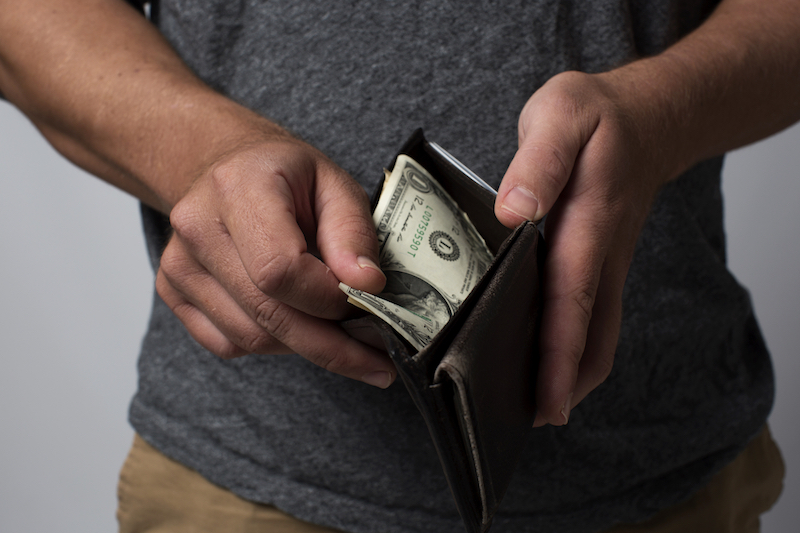The TV series Breaking Bad nearly made drug dealers look cool. Walter White was an everyday chemistry teacher who, after being diagnosed with terminal cancer, began using his skills to produce and sell methamphetamine in order to pay for treatment and create a financial nest egg to leave behind for his family. As the über-popular show went on, White was involved in all sorts of elaborate encounters with police and criminals alike. He captivated audiences.
If I told you this show was loosely based on my life story, you wouldn’t believe it. And you shouldn’t—mine isn’t near as eventful. Ten years ago, though, I was selling marijuana and prescription pills. My client base was mostly other 20-something guys like myself. I’d make deals that were $30 here, $5 there. And I wasn’t doing so for some faux-altruistic cause like battling medical bills or trying to feed my family. There were no police standoffs or territorial drug wars; I just liked making a little extra money. Becoming a two-bit drug dealer in my neighborhood wasn’t too difficult, either.
World with No View
As a professed Christian of only a few years who’d grown up as an unbeliever in an unbelieving home, I was still believing more lies than I could articulate at the time. I didn’t know how to separate biblical wisdom from worldly wisdom, and my worldview had no view at all—it was blinded by inconsistency. Morality was a jumbled mess in my mind. I didn’t know truth from falsehood. I wasn’t even trying to find out. 
By all accounts, we were a 1950s home. Dad worked all day and Mom was a homemaker. I made good grades and never got in trouble with the law. I was as buttoned-up as any of the other Christian kids I knew. But it wasn’t all so innocent. I could have girls over for the night. I could drink and smoke if I wanted; marijuana and prescription pills were common in my home. My parents had smoked marijuana multiple times a day my entire life. My mom, who had health issues, was prescribed a myriad of pills and was buying more off the street. Being told to stay out of legal trouble while buying and selling drugs wasn’t ironic to me. I just knew not to get caught.
When my parents divorced, my mom’s drug addiction worsened. I had to carry her to bed several nights a week because she was too high on muscle relaxers to get off the couch. She’d made a mess of her life, and the depression was overwhelming at times. She no longer used drugs recreationally, but as a means to cope. To my shame, she even became my best customer.
Even after professing Christ, drugs were more a part of my life than he was.
Turning Point
Toward the end of my drug-peddling pseudocareer, the Lord began intensely reshaping my life. My boredom with frivolity forced me to rethink things. What I’d meant for evil, God meant for good (Gen. 50:20). He used my sin to show me its emptiness. I started grasping grace. For the first time, I was hearing what he’d been telling me all along: what defines my character is not me, my parents, or my past. It’s him.
During that time, a friend at church handed me a CD of four sermons by some unknown local pastor named Matt Chandler. I’d never listened to sermons, but I had a five-hour drive from Dallas to Lubbock, Texas, and needed something to pass the time. I listened to all four sermons on the way to Lubbock, and again on the way home.
I arrived back in Dallas a different person.
“Freedom vs. Narcissism,” a message Chandler preached from Galatians 5, hit me the hardest. The thesis was that everyone everywhere is buying into the lie that joy comes from self-sufficiency. But true life, he said, is found in the fruit of the Spirit. Through his Word, the Holy Spirit graciously used this sermon to rip the scales off my eyes. I could see more clearly than ever before. I finally knew—really knew—that his goodness in my rebellion was more attractive than anything a few drugs and $20 bills could offer.
Front Porch Grace
I don’t deserve to be where I am today. I don’t deserve to write an article like this. I should still be in the pigsty, rolling around in the mud while my Father stands on the front porch, awaiting my return. But he summoned me. He sprinted to me in grace as I stumbled to him in shame. He embraced me, and he has never let me go.
I come home every day to a beautiful wife and to a bubbly daughter who’s excited to be a big sister soon. Most afternoons my daughter runs to me in the driveway yelling, Daddy! When I pick her up and kiss her on the cheek, it’s a tangible reminder of my Father’s own love for me.
I’ve been in ministry for almost a decade and get to write about the gospel. Ten years ago I sold weed, stayed late at bars, and chased girls. Now I’m selling Bibles, staying up late writing a thesis, and chasing my daughter.
It’s grace. All grace.
Is there enough evidence for us to believe the Gospels?
 In an age of faith deconstruction and skepticism about the Bible’s authority, it’s common to hear claims that the Gospels are unreliable propaganda. And if the Gospels are shown to be historically unreliable, the whole foundation of Christianity begins to crumble.
In an age of faith deconstruction and skepticism about the Bible’s authority, it’s common to hear claims that the Gospels are unreliable propaganda. And if the Gospels are shown to be historically unreliable, the whole foundation of Christianity begins to crumble.



































